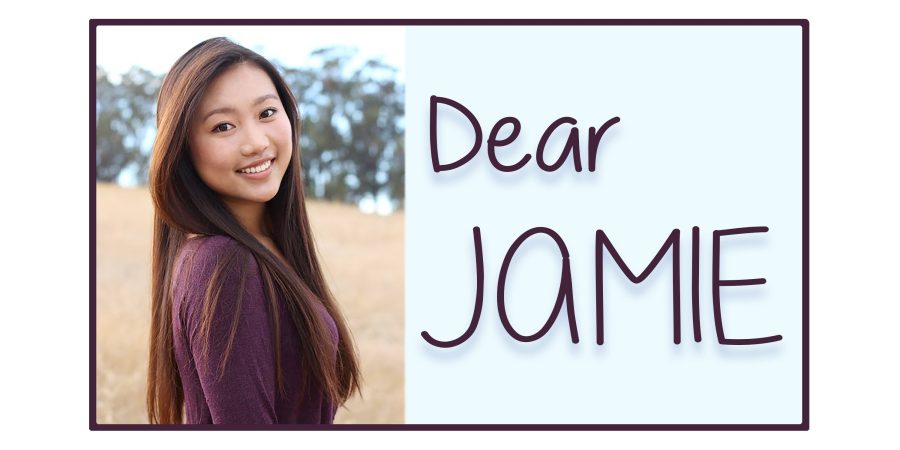DEAR JAMIE:
I have had trouble sticking to one friend group for a long period of time. Whenever I feel like I have a friend group and I feel comfortable where I am socially, I always quietly get pushed out without knowing why. How do I know if this constantly happening is because of me as a friend, something I keep doing or just because I’m outgrowing these friend groups?
— WANDERING
DEAR WANDERING:
Unstable relationships can certainly be very stressful, especially in the context of a busy life. Yet, no matter how difficult they can be, relationships remain important to humans because we are social animals that nearly inevitably drift back to being with and being emotionally and mentally impacted by others. Thankfully though, the impact of relationships is not all that bad. Through relationships, you can learn many valuable things about yourself and about other people.
Consider this: why is it that you want the specific friendships around you? In each relationship, list the reasons you have stuck around and want to stay by the other person, and identify which are predominant.
For instance, does the other person fulfill a particular, personal need, be it emotional or practical? Do you feel attached because you have a desire to help the other person grow in some specific way that you can guide? How do those reasons affect the strength and drive behind your relationship?
In addition, what does a friend group mean to you? I believe people find comfort in the idea that a friend group is associated with secure belonging and a label to add to one’s identity. However, friend groups are not actually as fundamentally stable as most often think because friend groups are fluidly organic, always shifting. Yes, there are some friendships and groups that last for years despite great tribulations, but even those evolve. Thus, in the greater context, the concept itself of a permanent friend group is not so significant.
So, it’s okay to be feeling the way you feel. It’s okay to be a wanderer; I consider myself one too, and I have encountered the same thoughts you’ve expressed. You are not alone.
To directly answer your question, you will likely not know the exact reason a friendship changes; change in life is not something individual humans can control or fully comprehend. Nevertheless, if you want to identify possible reasons why a friendship is not working or has not worked, there are some things you can do.
Reflect on how your and others’ characteristics impact your roles in relationships. Do you tend to listen or talk, to initiate or follow first? Do your tendencies clash with other peoples’, perhaps because they are so similar that they create competitive tension or so dissimilar that you struggle to understand and accept the other?
If yes, consciously give and take who embodies what role in each situation. If needed, discuss your concerns and establish a compromise. If, even after that, you continue to conflict, consider that the friendship may not be best for both of you. Letting go of relationships that create more harm than help is a reasonable option.
Sometimes, people misunderstand others’ actions and intentions. Perhaps your friends did not mean to make you feel isolated; people express their love, need for personal space and honesty in different ways.
The only way to know if a distancing is intentional or not is to have an honest, open conversation. Discussing what each side has perceived may help you understand each other better, but be prepared for whatever you might hear and acknowledge that talking still might not explain everything. Be as open-minded as you can.
In the end, the people who truly care about you, who take time out of their life to care for you and who look past all the surface-level activities and conversations to consistently trust and seek to know the deeper “you” will stand out through time and tribulation. There may not be many, but they will be there. These people may already exist around you, but only time will tell. Those will be the relationships that matter most.
Remember, everyone is walking his or her own path, and relationships simply depend on whether people’s paths will cross, continue side by side or diverge. None of these directions are right or wrong, and each path can lead a person to wonderful places whether it aligns with another’s or not. If a relationship is really, deeply important to you, you can try to redirect yourself to align with the other’s path. But, before you commit yourself to doing so, thoroughly consider the value of your own prospects against the other’s, and don’t hasten to tie your two lives together and become dependent on each other. Who knows — your paths may cross again in the future at a more appropriate time. The world is big, and your life lies ahead of you.
WITH LOVE: JAMIE
Dr. Moira Kessler, a child psychiatrist at the Stanford University Department of Child and Adolescent Psychiatry, offers feedback to the column writer. She is not providing any clinical services.
For questions, email dearjamie16@gmail.com.



